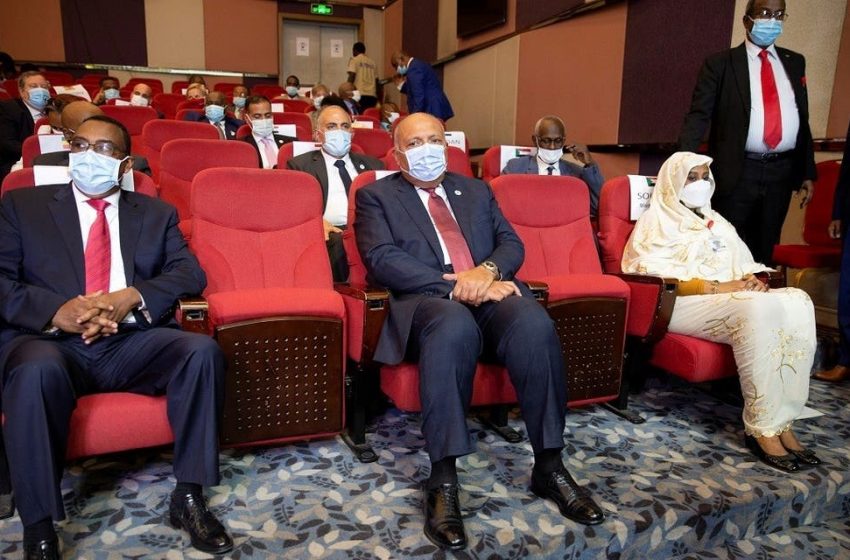
Ethiopia suspends work of its embassy in Egypt for ‘economic reasons’
Source: Alarabiya News
September 27, 2021
The Ethiopian Embassy in Cairo announced the suspension of its work, starting October, for “financial and economic reasons.”
The Ethiopian ambassador to Egypt, Marcos Tekele, revealed in press statements reported by Egyptian media that the duration of the suspension of the embassy’s work may extend between three to six months.
The crisis of the Renaissance Dam between Egypt, Ethiopia and Sudan witnessed new developments after the Security Council’s statement that the three countries should return to the negotiating table and reach a binding and final agreement.
Egyptian Foreign Minister Sameh Shoukry said that the Security Council’s statement on the Renaissance Dam strengthened the negotiating framework under the auspices of the African Union.
He added, in statements to the Egyptian Nile News Channel from New York on the sidelines of the United Nations General Assembly, that what is issued by the Security Council has a mandatory character that requires that the three countries engage in negotiations and reach an agreement to end this crisis.
The Minister of Foreign Affairs stressed that Egypt always looks forward to a binding legal agreement that achieves the interests of the three countries, Egypt, Sudan and Ethiopia, and ends this crisis.
Shoukry had confirmed that reaching a binding agreement on the Renaissance Dam would spare the region a complex scene that we do not want and whose consequences are not good.
Since 2011, the three countries have been negotiating an agreement to fill and operate this Ethiopian dam, which is intended to be the largest source of hydroelectric power in Africa, with a capacity of 6,500 megawatts.
In March 2015, the leaders of Egypt and Sudan and the Prime Minister of Ethiopia signed in Khartoum a Declaration of Principles agreement to overcome differences, but subsequent negotiations did not lead to a final consensus and a binding agreement.
While Ethiopia considers the dam necessary to achieve economic development, Egypt considers it a vital threat to it, as the Nile provides it with about 97 percent of its irrigation and drinking water.
Although Egypt and Sudan urged Ethiopia to postpone its plans to fill the dam’s reservoir until a comprehensive agreement was reached, Addis Ababa announced on July 21, 2020 that it had completed the first phase of filling the 4.9 billion cubic meter reservoir.
Addis Ababa also announced in July 2021 that it had achieved its goal for the second year with regard to filling the dam, and that the amount of water present was sufficient to start energy production.
